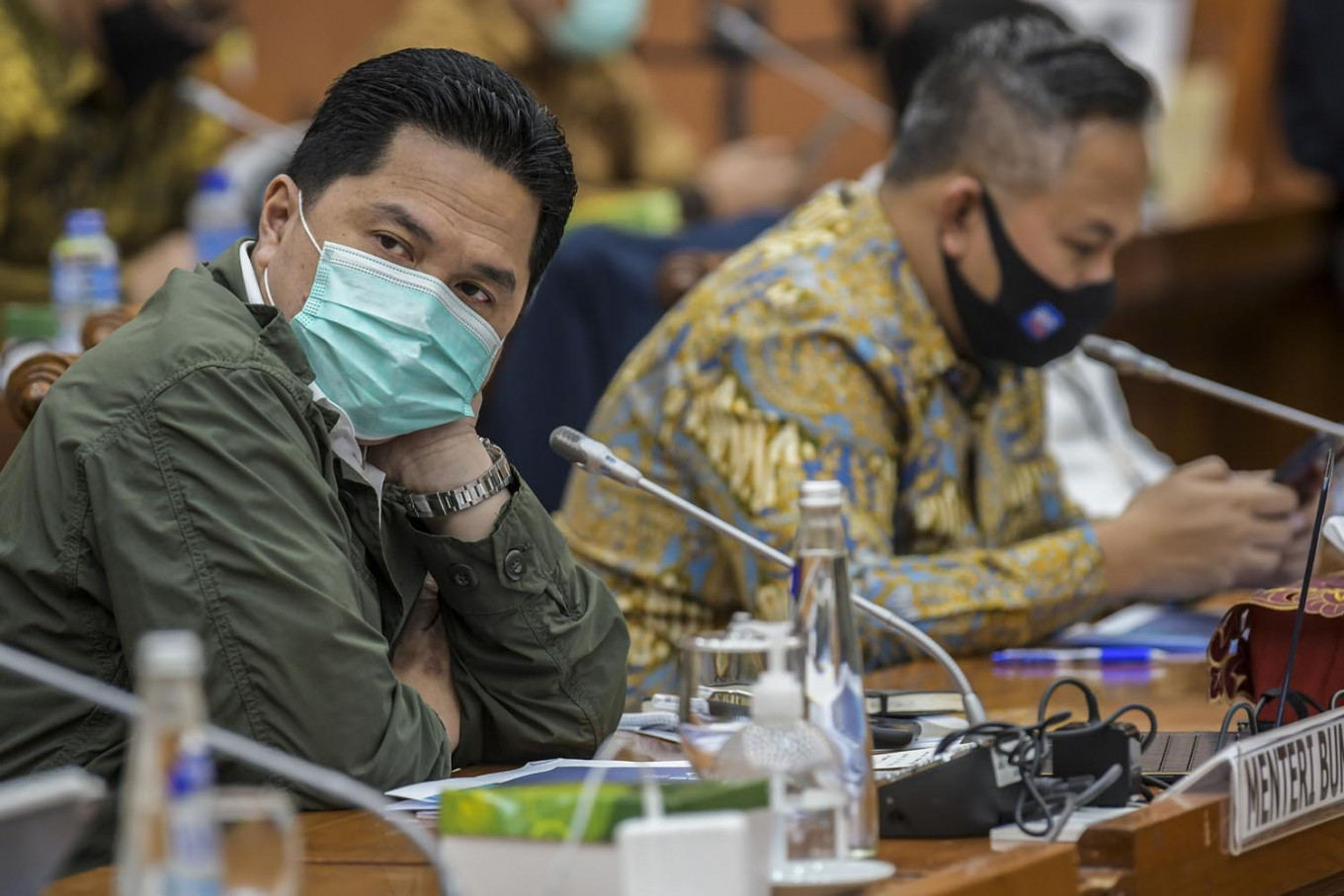Popular Reads
Top Results
Can't find what you're looking for?
View all search resultsPopular Reads
Top Results
Can't find what you're looking for?
View all search resultsSOEs’ combined revenue up 14 percent annually
Change text size
Gift Premium Articles
to Anyone
T
he State-Owned Enterprises (SOEs) Ministry has said the total revenue of the companies under its supervision increased by 14 percent year-on-year (yoy) in 2022 to Rp 2.61 quadrillion (US$172 billion).
SOEs’ consolidated net profit surged 143.6 percent yoy to Rp 304 trillion, while their total assets grew 9.9 percent yoy to Rp 9.87 quadrillion, the ministry said.
"That growth was backed by the success of restructuring some SOEs and the rise in commodity prices," said Nawal Nely, finance undersecretary at the SOEs Ministry, at a webinar organized by the Asian Development Bank (ADB) on Tuesday.
Read also: SOEs to move away from US dollar debt, plan shorter-term debt
Nawal added that the ministry would continue to pare down the number of SOEs and optimize their performance.
The number of SOEs dropped to 92 in 2021 from 108 the year before. That number fell again to 41 last year, and the ministry aims to whittle it down to 37 firms this year.
This period of restructuring has resulted in the formation of conglomerate SOEs, such as Pertamina, which has several subsidiaries.
Beyond the revenue figures, Nely said, the ministry was monitoring indicators such as SOEs’ ability to maintain their balance sheets and credit ratings, as well as their fulfillment of their public service obligations.
The ministry was also preparing to establish a consolidated sustainability report that integrated guidelines from the International Sustainability Standard Board (ISSB), Nely added.
Read also: Jokowi tasks SOEs to actively aid homegrown start-ups
Vikram Nehru, a Southeast Asia economics expert at Johns Hopkins University's School of Advanced International Studies, expressed concern about the extensive mergers of state-owned enterprises.
He feared some major SOEs could develop stronger political and economic positions than the government.
"It has happened in Vietnam and China, where conglomerate SOEs [were able to] outgrow the ministry," said Nehru, who is also a former chief economist at World Bank for East Asia and the Pacific.
Nehru suggested that SOEs’ public service obligations not be structured in such a way that their ability to generate revenue was constrained, as the public might be better served by the government’s use of higher SOE returns.
“For example, it may be better if the government channel incentives or subsidies directly to the public as the end users, rather than through SOEs,” he said.










